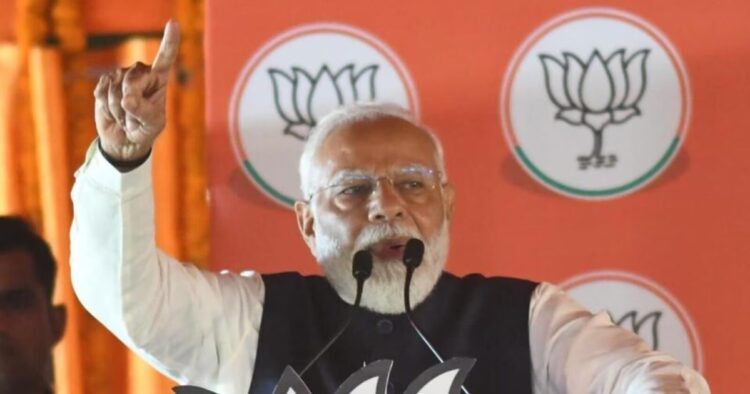Prime Minister Narendra Modi addressed a gathering at an election rally in Barrackpore, West Bengal, on Sunday, May 12. In his speech, he targeted the ruling Trinamool Congress (TMC) and made significant promises to the people of Bengal.
Modi pledged five guarantees to the state, emphasizing that there would be no religion-based reservation under his leadership. He assured that reservations for Scheduled Castes (SC), Scheduled Tribes (ST), and Other Backward Classes (OBC) would be protected.
In addition, he affirmed the freedom to conduct Ram Navami Puja and upheld the Supreme Court’s decision on the Ram Temple in Ayodhya. Modi also declared that the Citizenship Amendment Act (CAA) would remain in place, denying any attempts to revoke it.
Accusing the TMC of corruption and neglecting Bengal’s potential, Modi highlighted the historical significance of Barrackpore and its role in Bharat’s independence struggle. He criticized the TMC for allegedly fostering an environment of violence and sheltering illegal immigrants, contrasting it with Bengal’s past as a hub of scientific innovation.
Modi condemned the TMC-Congress alliance for practicing what he termed as “appeasement politics,” alleging that they incite religious tensions for electoral gains. He cited inflammatory remarks by TMC leaders as evidence of their divisive tactics, promising to counter such narratives.
Looking ahead to the 2024 Lok Sabha elections, Modi expressed confidence in the Bharatiya Janata Party’s (BJP) prospects in Bengal, aiming to improve upon their performance in 2019. He underscored the significance of eastern states like Bengal in his vision for “Viksit Bharat” (Developed India), outlining plans to leverage their resources and tourism potential for economic growth.
Prime Minister Modi’s address in Barrackpore encompassed a blend of electoral promises, criticism of the current state government, and a vision for the future development of West Bengal.
As the political landscape continues to evolve in the run-up to the elections, his assurances and rhetoric are likely to shape the discourse in the state.

















Comments